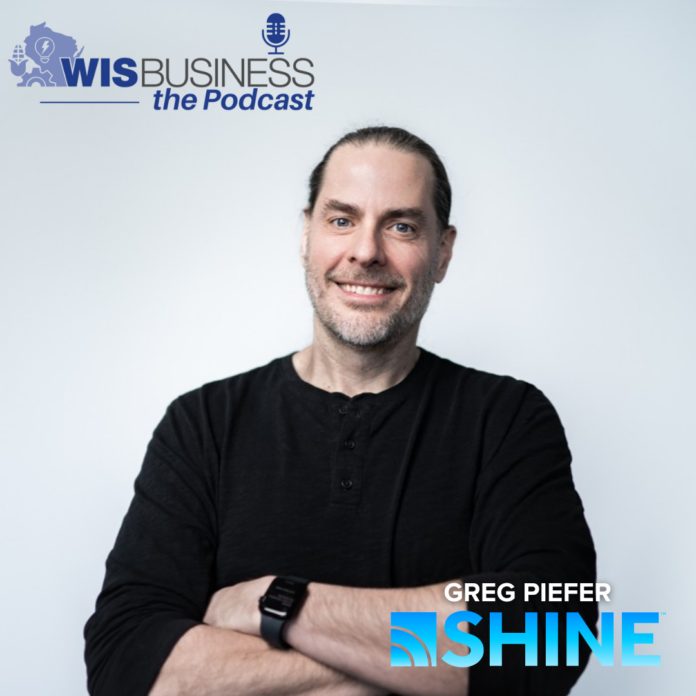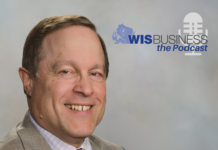This week’s episode of “WisBusiness: the Podcast” is with returning guest Greg Piefer, founder and CEO of SHINE Technologies.
Piefer discusses the latest developments and path ahead for the Janesville-based nuclear technology company, which recently announced an agreement with a business called Orano to develop a pilot plant for recycling spent nuclear fuel.
“It’s a really big deal,” Piefer said. “I think as we look at climate change and our progress in combating climate change, it hasn’t been as nearly as fast as we need it to, and I think there’s increasing acceptance that nuclear energy is probably one of the most powerful tools we have for actually meeting our climate goals.”
But nuclear energy has two major challenges, he notes, pointing to cost and waste. The cost of operating nuclear fission power plants has been coming down over time, but the long-term problem of storing nuclear waste remains a stickler.
“We’ve taken it upon ourselves to position ourselves in the middle of what I think will be a rebirth of a U.S. recycling capability for nuclear waste,” he said. “And it turns out that recycling nuclear waste can not only reduce the volume of the waste stream by about a factor of 20 … it can also mine valuable materials out of the waste stream that can be used.”
SHINE’s large-scale medical isotope production facility, called Chrysalis, is licensed in the same way a nuclear waste recycling facility would be, Piefer said. He said the company is “uniquely positioned” to help address the nuclear waste problem with its existing expertise.
Orano has a successful track record of recycling nuclear waste in France for much of Europe and other countries including Japan, according to Piefer.
“If you look at the amount of waste Orano has recycled over its tenure as a company, it’s half the U.S. stockpile,” he said. “So we’re talking about a really meaningful amount of waste. We want to learn from them, we don’t want to reinvent the wheel.”
The pilot plant is expected to launch sometime in the 2030s, but Piefer says federal regulations could influence that timeline.
“The biggest thing that needs to happen, frankly, is we need the government to solidify on its policy of whether they’re going to fight this or whether they’re going to embrace this,” he said. “I think there’s mixed feelings in the government right now.”
Listen to the podcast below, sponsored by UW-Madison:
Listen to an earlier podcast with Piefer here.






